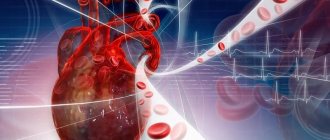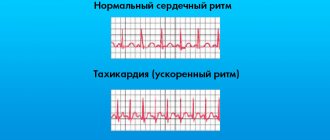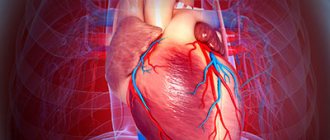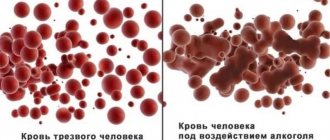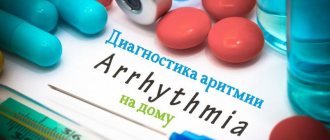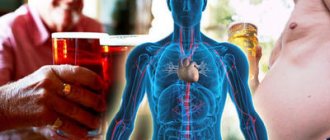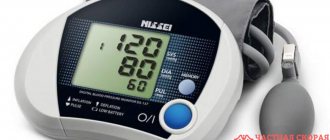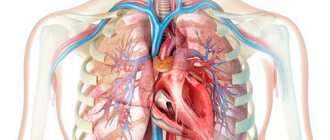Excessive amounts of ethyl alcohol have a negative effect on the body. But first of all, the load on the liver and cardiovascular system increases. The effect of alcohol on the heart manifests itself in myocardial damage, which subsequently leads to cardiomyopathy. Alcoholics also have an abnormal heart rate and heart pain. Patients, while intoxicated, do not even feel changes in the body. But this becomes noticeable the next day, when the effect of the alcohol wears off.
To prevent the development of adverse consequences, you need to figure out what to do if you feel severe pain in your heart after drinking.
Services of our clinic
Detoxification of the body
Detoxification is a process that goes through the human body, eliminating traces of alcohol or drugs.
Alcoholism coding
Effective coding for alcoholism, which will help a person return to a healthy and fulfilling lifestyle
Treatment of alcoholism
High-quality drug addiction treatment in Moscow and the Moscow region at a low price, individual therapy
Addiction rehabilitation
A powerful set of measures leading to complete relief from any addiction, working with the patient in 12 directions
Will one drink do any harm?
American scientists warn that even small doses of alcohol increase the risk of arrhythmias, especially if you have already had them. In 2021, they conducted an experiment involving 100 elderly patients (average age 64 years) prone to periodic arrhythmias (atrial fibrillation).
Participants were given cardiac monitors to record ECGs, as well as skin sensors to measure ethanol levels in the blood. In addition, their blood was periodically taken for analysis. The experiment lasted 4 weeks.
More than half of the participants experienced arrhythmias during this time, and most often they were preceded by alcohol consumption:
- atrial fibrillation occurred twice as often after drinking 1 drink (a measure equal to 14 g of pure alcohol or 45 ml of vodka), compared with a sober state;
- and three times more often - after consuming 2 or more drinks;
- The risk of arrhythmia also increased with increasing blood alcohol concentration.
How alcohol affects the heart
There is a popular belief that alcoholic drinks are good for heart health. And this is partly true, small doses do have a protective effect on blood vessels. This amazing property is associated with the ability of ethanol to reduce the density of lipoproteins and cholesterol and stop their penetration into the walls of blood vessels.
It is also known that alcohol reduces the amount of fibrinogen, which prevents the formation of blood clots. But these beneficial properties of ethyl alcohol appear only if you drink no more than 10 grams per day. In other cases, alcohol is harmful to the heart muscle.
In acute alcohol poisoning, the following occurs:
- the contractile function of the myocardium is inhibited;
- sudden jumps in blood pressure;
- short-term dilation of blood vessels leads to their prolonged spasm;
- factors of severe arrhythmia arise - the amount of potassium in the blood decreases, the formation of catecholamines accelerates.
Chronic alcoholism leads to the development of alcoholic cardiomyopathy. This pathology occurs against the background of impaired synthesis of protein and ATP molecules. Such a malfunction in the body causes weakening of the heart muscle cells due to lack of energy.
Because of this, the myocardium loses function, the heart increases in size and is no longer able to cope with serious physical exertion, as a result the following occurs:
- swelling of the legs;
- severe shortness of breath, as well as rapid heartbeat when running, walking quickly or when climbing stairs;
- chest pain;
- difficulty breathing, lack of oxygen;
- arrhythmia.
If you do not pay attention to this in time and do not start treatment, the consequences may be unforeseen. With such damage to the heart, coronary insufficiency, extensive infarction, ventricular fibrillation and even cardiac arrest develop.
With a normal, healthy heart rhythm, the number of beats does not exceed 60-80.
What is extrasystole?
What are the consequences of extrasystole from alcohol? Heart disease claims thousands of lives every year. Heart rhythm disturbances, which develop in the form of extrasystole, may be a direct consequence of drinking alcohol.
Extrasystole is a pathology of the cardiovascular system, which consists of a violation of the heart rhythm. A characteristic feature is that the entire myocardium or part of it contracts out of turn; arrhythmia manifests itself as an untimely contraction of the heart. Extrasystole after alcohol is a common problem.
A healthy person should not have such a disorder, but it does happen. For example, if the cause of this deviation from the norm is of a psychogenic nature. Probable causes: vegetative dystonia, neurosis and other similar problems, the action of certain chemical or food reagents. The list of causes includes alcohol and drugs.
A disappointing fact: extrasystole is a fairly common problem that has been reported in approximately half of the inhabitants of our planet. There are two common forms of the disease:
- Functional : the causes of the disease are toxins, stress, bad habits (smoking, alcoholic drinks);
- Organic : there is mainly one reason - pathology of the heart muscle.
Extrasystole is a disorder caused by ischemic heart disease, cardiosclerosis, and cardiomyopathy. Depending on the location of the source of the disease, the following types of disorders are distinguished: atrial, ventricular, mixed.
If there is organic heart damage, extrasystole is the most dangerous. As a result, ischemia and necrosis may occur.
Causes of heart pain
A common cause of pain after taking ethyl alcohol in large quantities is spasm of the coronary vessels. As a rule, the development of cardialgia occurs on the second or third day after drinking, at the moment of emerging from a long binge. This pathology is accompanied by increasing aching or stabbing pain in the area of the heart muscle. Moreover, these painful sensations are not associated with physical activity and do not go away after taking nitroglycerin.
An attack of cardialgia can last for hours; painful sensations are often accompanied by a lack of air and a rapid pulse.
Such heart problems can occur even in healthy people. In such cases, arrhythmia manifests itself in different ways:
- attack of atrial flutter;
- tachycardia;
- problems with conduction in the myocardium such as blockade;
- extrasystole;
- It becomes difficult to breathe.
If problems with the functioning of the heart muscle occur during a feast or the next day, then this indicates that the process of formation of pathologies has begun. In this case, you need to urgently consult a doctor, only he will be able to conduct a full examination and prescribe the correct medication.
It is important to call an ambulance in time in case of alcohol intoxication. The doctor will provide first aid aimed at alleviating the general condition.
What should the doctor find out?
- The specialist finds out all the factors and circumstances under which the manifestations of the disease intensify. What exactly causes arrhythmia?
- Find a connection between the characteristics of arrhythmia and physical activity.
- Does the intensity of symptoms change if you take medications?
- An important way to monitor heart function is daily monitoring.
What signs should tell the doctor that the patient has cardiomyopathy and extrasystole? The QRST complex or early appearance of the P scar, the P scar is absent before the extraordinary contraction of the heart muscle, there is a pause after the ventricular extrasystole.
To make a more accurate diagnosis when in doubt, you can use other methods :
- Bicycle ergometry is a diagnostic method that allows you to identify hidden coronary insufficiency during physical activity and changes in its intensity. As the name suggests, the equipment used is an analogue of an exercise bike.
- Treadmill test is a diagnostic technique for which a treadmill is used; during the test, a specialist evaluates how the heart muscle reacts to physical activity .
How to minimize the harm of alcohol to the heart
If you can’t give up strong drinks, then you need to at least follow a number of rules designed to reduce the damage to the heart:
- Drink only high-quality alcohol. Completely exclude surrogates.
- Control the amount of alcohol you drink and adhere to the permissible dosage.
- While drinking ethanol, do not forget about a snack, but completely avoid fatty and salty foods.
- Follow the regime, that is, drink no more than 1-2 times a week, and even less often for people suffering from heart problems.
- Do not mix medications (especially heart medications) with alcohol.
- Forget about alcoholic energy drinks.
- The list of prohibitions also includes beer. Instead, one glass of red wine is allowed.
But remember that if you experience discomfort in the heart area, it is better to completely stop drinking alcohol-containing drinks.
Medical studies have shown that contrast showers are prohibited for heart problems. In some cases, deterioration of well-being is possible, since the walls of the blood vessels are already under severe tension. Such a shower can only be taken if you feel well and have no contraindications. Before any procedures, it is recommended to consult a doctor.
When to call an ambulance
Signs and symptoms for which you need to call an ambulance:
- severe headaches, which are accompanied by frequent vomiting and nausea;
- attacks of shortness of breath;
- speech problems;
- dizziness, progressive weakness;
- weakness in the leg and arm on one side, distorted facial features.
We do not recommend self-medication, as this can only aggravate the situation and lead to unforeseen consequences.
But you can temporarily ease your health until the ambulance arrives in the following way:
- taking 2 validol tablets;
- 30 drops of motherwort, tincture of valerian, Valocardin or Barboval;
- If there are no stomach problems, take one aspirin tablet.
Usually, the heart returns to normal on its own, but with excessive drinking, the risk of developing pathologies increases. It is difficult for him to cope with large amounts of ethanol, and vascular tissue suffers. And therefore, the manifestations of reactions to binge drinking are different.
News
Alcohol can trigger an arrhythmia attack
Publication date: 06/04/2012, Modification date: 06/04/2012
In a recent study, American scientists were able to discover a strong connection between alcohol consumption and heart rhythm disturbances in patients with atrial flutter, one of the most common forms of arrhythmia. The results of their study will be published in August in the American Journal of Cardiology.
Doctors have noted this relationship before. A separate term was even introduced for it in 1978 - “holiday heart syndrome.” It served to describe the condition of arrhythmic patients who often complained of palpitations after heavy consumption of alcohol during the multi-day New Year and Christmas holidays. As a rule, with the cessation of alcohol abuse, this symptom disappeared. The symptom “palpitation” itself also requires some explanation: of course, heartbeat itself is not a pathology. However, a healthy person, as a rule, does not feel it. Palpitations as a symptom can be described as the patient feeling his own heart beating. It is described as a pounding, fluttering, sinking and jumping heart, and in most cases this symptom is a sign of cardiac dysfunction. In the latest study, which ran from September 2004 to March 2011, researchers surveyed 223 patients with diagnosed arrhythmias, including patients with atrial flutter (133 participants) and ventricular tachycardia (90 participants). Their average age was 59 years. Patients were asked 1 question: “Does drinking alcohol affect your heartbeat?” The answer was a choice of 5 options - never, rarely, sometimes, often, constantly.
After analyzing the responses, the researchers found that excessive drinking, on average, increased the risk of palpitations by an average of 4.5 times in almost all patients suffering from atrial flutter. In most of them, in addition to the subjective feeling of heartbeat, an ECG was performed, which confirmed atrial fibrillation. No such relationship was found in patients with ventricular tachycardia. Researchers urge people who know they have atrial flutter to avoid binge drinking if possible.
Related links:
Alcohol and Vagal Tone as Triggers for Paroxysmal Atrial Fibrillation - The American Journal of Cardiology, 04/23/2012; DOI: 10.1016/j.amjcard.2012.03.033
Festive heart - article, 12/30/2009
Photo © shutterstock.com
How to help your heart after alcohol
Treatment of cardiomyopathy resulting from alcohol abuse should only occur with complete cessation of the bad habit. This is due to the incompatibility of cardiac drugs and ethanol. It is also necessary to reduce the amount of salty foods.
All medications should be prescribed by the attending physician after a complete examination and diagnosis. Attempts to cope with a serious condition on your own can lead to death.
Medicines are selected for each patient individually:
- aspirin;
- beta blockers;
- drugs whose action helps improve myocardial nutrition;
- magnesium and potassium salts;
- medications to normalize calcium levels in the body.
If the patient is concerned about high blood pressure, then enterosorbents (activated carbon, enterosgel, polysorb) are additionally prescribed. The reduction in pressure should be gradual so as not to further harm the body.
If you have any questions about the treatment of chronic alcoholism and coding, call our hotline. Consultation with the on-duty narcologist is free.
